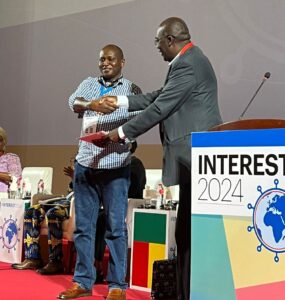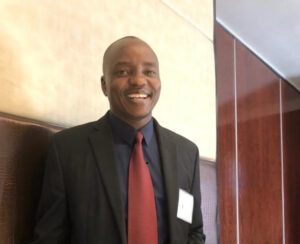It is the wish of every researcher to have access to funding for their work. While it is not always readily available, the first step to being successful at it is a well-written grant application. Frederick Oporia, (Cohort Ten Fellow, Makerere University), took us through what fundraising as an early career researcher entails.
What would you say is a good strategy for fundraising as an early career researcher?
What worked for me is assertiveness and persistence in writing. Looking out for any relevant calls is essential, and submitting the applications. Do not lose hope and energy if they are rejected. In the end, one of them will end up in your basket.
How would you advise an early career researcher struggling to find and retain funding to support their PhD project?
Applicants should not get deflated if any of their applications are rejected/not granted. It does not necessarily mean their work is not good enough. It may be that it was not among the interests of the grant call. Ride on the comments given for rejection and improve the writing and submit to other calls. But, essentially, they need to read and understand the interests of the grant they are applying for and align the application to those interests. Many promising studies are not funded simply because it was not their interest/area of focus.
Since the Covid-19 outbreak, how do you think fundraising has changed for early career researchers? What are the challenges and opportunities you have seen emerge?
I notice that most calls for funding tended to be biased towards Covid-19. This is a challenge because most PhD fellows were already focused on their study areas that did not have Covid-19 as a component. However, the opportunities for one to align their research in the spaces of Covid-19 prevention exist and can improve one’s chances of winning such grants.
Do you have any tips for early career researchers on how to remain resilient and actively pursue their studies during a pandemic such as this?
They should not lose hope just in case any of their applications are rejected. I have also had some applications rejected, but I used those comments to improve, then I submitted to another call, and I won. They should be aggressively persistent. They should also avoid fear and thinking that they might not win. No work can be perfect. Keeping to yourself will not win any funding; trying a submission has the potential to win funding.
Finally, what mistakes should early career researchers avoid when fundraising?
They should not depend on only one source. They should make as many applications as possible. They should also avoid last-minute submissions, which usually lead to errors that the grant reviewers can only detect. They should read and understand the instructions of the grant call because evaluations are based on each instruction given, even before the technical review is conducted. Lastly, while many reviewers don’t necessarily consider the quality of the English used (if the call is in English), poor English is usually a turn-off for some reviewers. So, it is vital to have a friend review for you before you click that submit icon.




